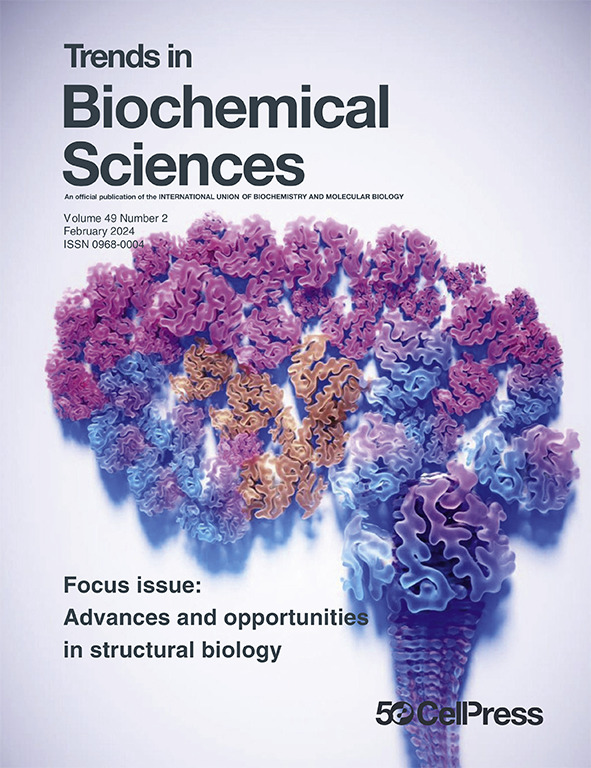Advancing sustainable biotechnology through protein engineering
IF 11.6
1区 生物学
Q1 BIOCHEMISTRY & MOLECULAR BIOLOGY
引用次数: 0
Abstract
The push for industrial sustainability benefits from the use of enzymes as a replacement for traditional chemistry. Biological catalysts, especially those that have been engineered for increased activity, stability, or novel function, and are often greener than alternative chemical approaches. This Review highlights the role of engineered enzymes (and identifies directions for further engineering efforts) in the application areas of greenhouse gas sequestration, fuel production, bioremediation, and degradation of plastic wastes.
通过蛋白质工程推进可持续生物技术。
使用酶来替代传统化学,有利于推动工业可持续发展。生物催化剂,特别是那些为提高活性、稳定性或新功能而设计的催化剂,通常比替代化学方法更环保。本综述强调了工程酶在温室气体封存、燃料生产、生物修复和塑料废物降解等应用领域的作用(并确定了进一步工程努力的方向)。
本文章由计算机程序翻译,如有差异,请以英文原文为准。
求助全文
约1分钟内获得全文
求助全文
来源期刊

Trends in Biochemical Sciences
生物-生化与分子生物学
CiteScore
22.90
自引率
0.70%
发文量
148
审稿时长
6-12 weeks
期刊介绍:
For over 40 years, Trends in Biochemical Sciences (TIBS) has been a leading publication keeping readers informed about recent advances in all areas of biochemistry and molecular biology. Through monthly, peer-reviewed issues, TIBS covers a wide range of topics, from traditional subjects like protein structure and function to emerging areas in signaling and metabolism. Articles are curated by the Editor and authored by top researchers in their fields, with a focus on moving beyond simple literature summaries to providing novel insights and perspectives. Each issue primarily features concise and timely Reviews and Opinions, supplemented by shorter articles including Spotlights, Forums, and Technology of the Month, as well as impactful pieces like Science & Society and Scientific Life articles.
 求助内容:
求助内容: 应助结果提醒方式:
应助结果提醒方式:


